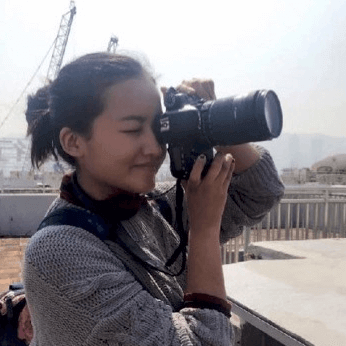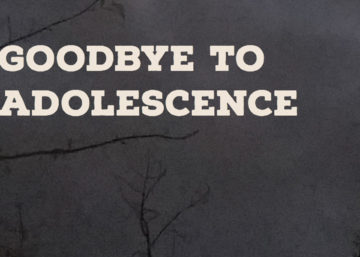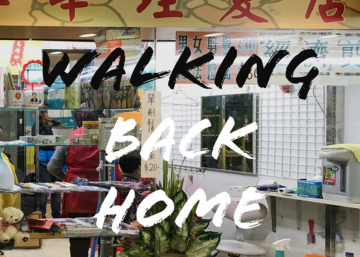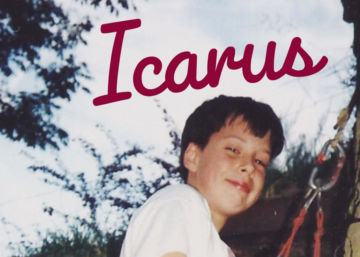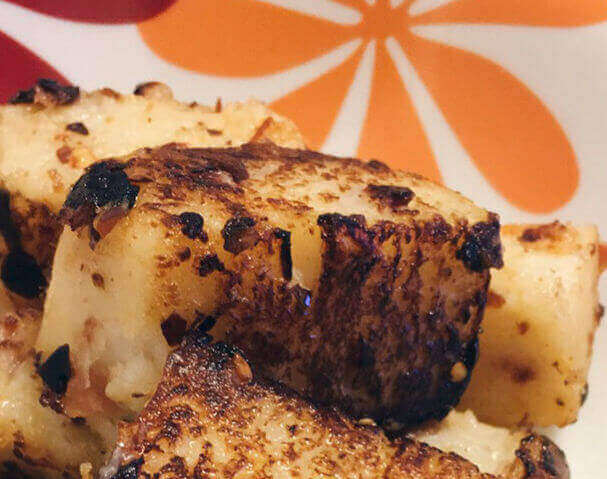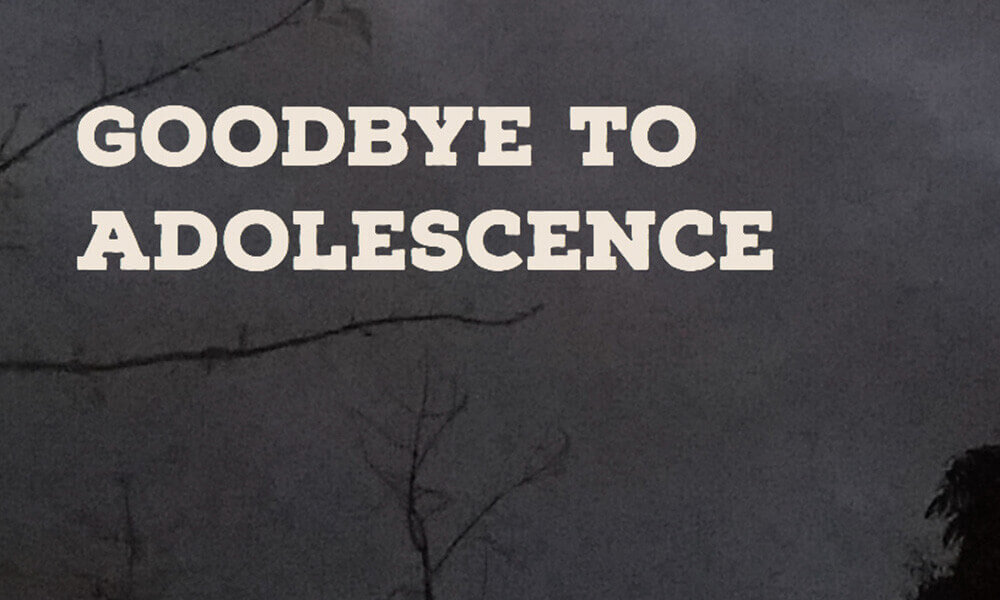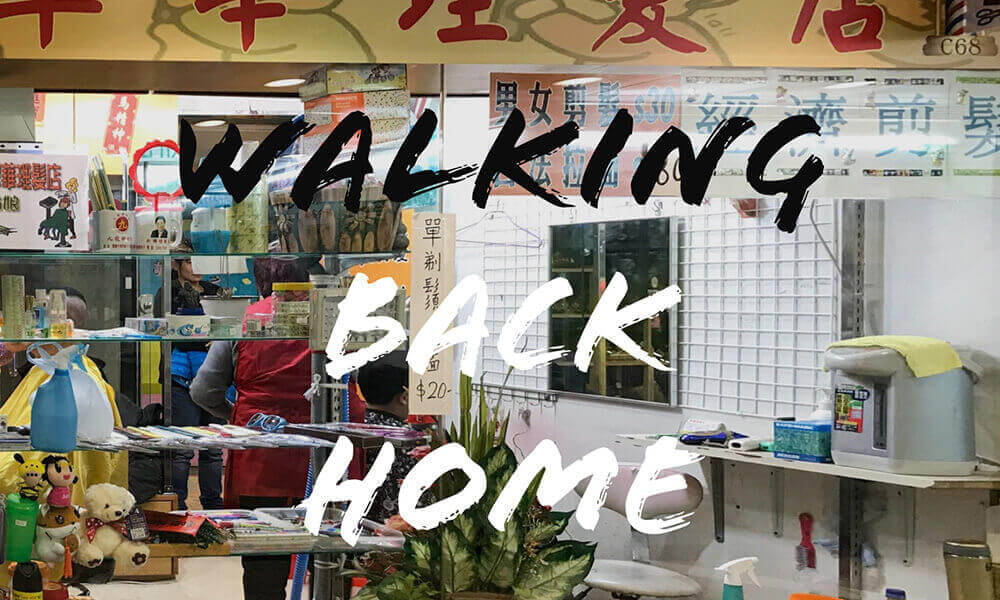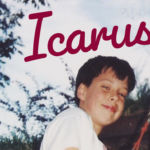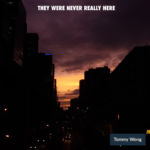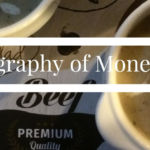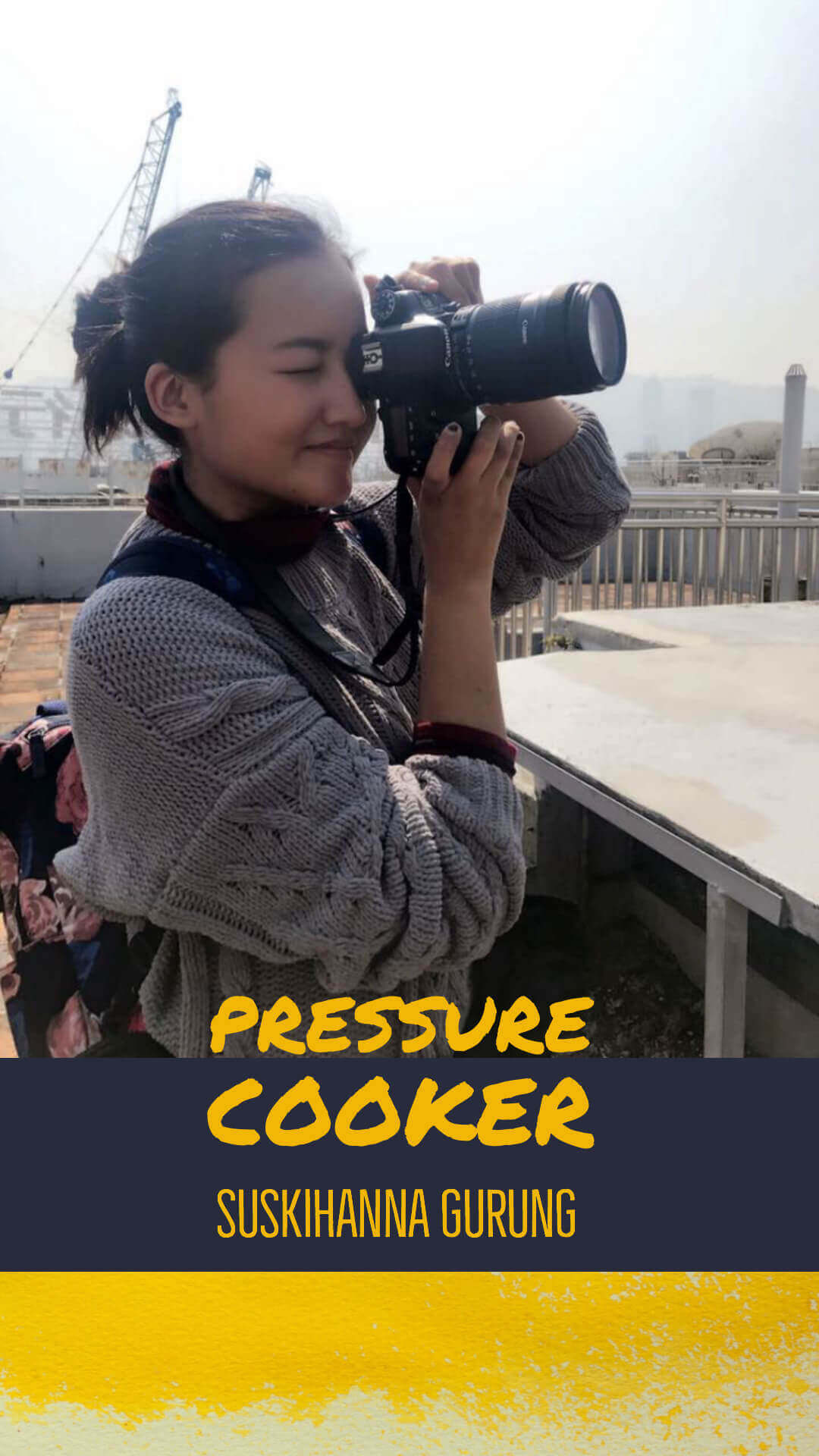
Autobiography and Documentary
Instruction Manual
This text comes with a video. The video should be watched first and the text read later.
The video serves as an introduction to some of the themes present in the texts in a simpler manner to give a taste of what to expect.
The texts are divided into three parts: exchange, the neighborhood and My Beginnings. The video serves a guide to connect the three parts together and how they fit into a narrative together. The text itself contains individual stories of each part that I felt were worth sharing.
Exchange
Welcome to my attempt at trying to write my own memoir – while still being alive! And pretty young with nothing figured out.
Growing up I never dreamed that one day not only would I travel across the world to the United States, but also happen to go to the UK and backpack around Europe.
Paris. Iceland. Germany. Portugal. Amsterdam. Belgium.
With my first taste of travel also came with the realization of how big the world is. Like really really big.
But I had a deeper reason for coming to the United Kingdom than just a mere exchange.Growing up I realized how shattered around the world my entire family tree was.
I never really truly got to celebrate any Nepalese festivals because there weren’t any relatives around. I wanted to use this excuse of travelling and going on exchange just to rekindle my relationship with my grandparents, my extended families and to figure out who I was because I never really got to learn my own culture.
But like any great Epic, a hero’s journey always ends with a return.
The neighborhood
Welcome to Hong Kong, the boiling point of my youth.
I have walked these streets forever so that I feel as if I own them.
In Yau Ma Tei, everyone is gasping for air, in this overcrowded cityWe live in buildings with no doors, just endless staircases.Random Nepali words are juxtapositioned against the Chinese surroundings.
We watch the world go by through narrow perspectives, because this is all we can afford.
Living here a long time makes you weary and both enamored of this city.
The working class and the grassroots, all call this place their home.
This is my neighborhood, my Hong Kong.
But even before this neighborhood came to influence me, there was my origin-story.
My Beginnings
This is my mother’s side of my family. And this is a road in Nepal. Just in case you were wondering. That’s my uncle doing the peace sign. Some people have the American dream but for people like my parents, they had the Hong Kong dream.
When my mother was 15, she got married to my dad. My mom was born in Hong Kong because her dad got stationed here. She was blessed with photogenic genes. My dad, not so much. He was better behind the camera. Posing never really came to him naturally.
When the children of two gurkha soldiers got together, it resulted in me. I was never the typical child. I was weird. I made ugly faces. I fought with my male cousins and I certainly ruined the family photos. This is one of my favorite photos, right before my mom made the complete switch to so called modern clothes.
These are my maternal grandparents; why did the tall genes skip me? This is my dad’s dad. After finishing the gurkha regime, he built something from scratch. I was raised by my grandfather and grandmother. While my parents were in Hong Kong. A story so common to most Nepalese kids it has become a cliché now. We were lucky if we saw our parents once a year.
This is me in Hong Kong. Why are the playgrounds here so empty? This was our first bed, I always liked sleeping on the floor anyways. My graduating secondary class, we had way too many boys, what happened to girl power?
What we didn’t have in terms of money we compensated, with lots and lots of Bollywood dancing. My mother was folding sheets for beds she would never lie on. Backs were breaking. Wearing a yellow cap, my father was constructing more than just buildings.
And although you may find their individual stories irrelevant, it is their experiences that have shaped my reality and identity today.
Origins
A tribe in Pennsylvania, now remains just as a river in Pennsylvania. That is where the origins of my name stems from. Susquehanna, the great female leader who succumbs to death rather than to surrender, is now the name of a river. The result of my dad’s deep admiration for the Native American culture and his youth, spent camping in the woods of America. The irony, of giving a powerful name to such a scrawny, shy kid like myself. I was too shy even to raise my hands to ask the teacher to go to the toilet. I would often pee myself in class.
This great admiration did not translate to many people. It got worse when I moved to Hong Kong. Teachers would always call me by another name. One day, I was a Japanese cuisine, another day Suki, the Japanese word for love and occasionally the car brand, Suzuki. I swear it does something to a child to hear her name is mispronounced for the entirety of her childhood. The fact that, teachers could not be bothered to even show a little bit of effort to learn our names, especially mine.
Move over to the age when I can actually correct people, the questions start arising. Now, we never question people about why they are called John or Mary, do we? It’s one thing to receive a compliment about one’s name but to start debates is another thing. People wondered why such a non-Japanese looking person had such a Japanese sounding name. Some people claimed it was the most Nepalese name they had ever heard. Ask any Nepalese person, that wasn’t the case. Throughout childhood, I felt embarrassed by my name. Because, people always tried to interpret it and apply their own meanings and understanding to what was mine.
Somehow, just like destiny, on my trip to the U.S., I was taking a bus from New York to Boston. When I passed by the river I was named after. It was a just plain river but somehow I felt empowered by seeing it and the sign, “Susquehanna River”. There is power in what lies in the ordinary and plain, I thought. Empowered in the wrong place and time, I was jetlagged on a bus munching a big bag of Lays.
Part I : Exchange
Gurkha Soldier
It’s hard to migrate when you’re a kid and haven’t made sense of the reality you live in, your parents and your own culture. I didn’t know why I was scolded for eating with my left hand. Holi, was just a time to throw balloons filled with water at my grandfather.
I am a British citizen by right, I carry a British passport.
I am a Hong Kong citizen; I bear the rights to abode.
But my blood is Nepali, Himalayan exactly.
I can’t imagine how it must feel to move when you have settled down after enduring a life of hardship. I chose to go to England for my exchange. Never had I felt more relief and regret in my life. Quite a huge chunk of my family resides there and my paternal grandparents had recently moved there for a few years already.
Imagine having to leave everything you know to some place so unfamiliar and foreign. I had never imagined that in such a foreign place I would be met with such familiar faces. It was kind of heartbreaking to see my grandparents not in the way I remembered them. Younger, happier, darker hair, still able to walk. Just happier and healthier.
My grandparents didn’t have a chance to an education, they were from villages in the hill. My grandpa became a gurkha solider at 13, most likely. Birth records weren’t really kept or even made. Our men are said to be extremely tough and foolishly loyal. It’s a skillset every kid has, after being raised in such tough terrains.
When I first arrived in the U.K. I wanted to get a general perception of people’s view on Nepalese people. Almost all of us have a gurkha ancestry. I saw articles and posts online complain about how former elderly gurkha soldiers were coming to the UK to receive the pension and healthcare benefits. Was the pension in the UK really enough, in exchange, for my grandfather’s childhood? To fight for wars that were not ours?
My last memories of my grandparents were when they visited me in Hong Kong when I was 14. It’s a miracle how they obtained a visa when Nepalese students and workers are banned here in Hong Kong. I guess they were more lenient to the visitors back then. Now even if they wanted to visit me, they couldn’t.
My grandfather was the smartest man in the world for me. He never got an education but could speak Nepali and Hindi fluently, he even learnt English and Thai by himself. The wanderlust that surrounded him must have passed onto my dad and me. Going on exchange, I found out my grandfather used to solo backpack around the world at the age of 50. He would save up and I can still see the fire in his eyes to do so. I can’t imagine a young gurkha solider travelling by himself around Europe, I definitely couldn’t imagine him being 50 years old and travelling to South America alone. But somehow, my grandfather did it. And without realizing it, I did the same in my time in exchange. I went solo backpacking around Europe by myself.
That must have sparked something in him. One night, my grandfather told me to turn on my laptop. I connected to the hotspot from my mobile as they didn’t have Wi-Fi at their place. He told me to look up one embassy after another. Switzerland. Italy. France.
“How do you expect to travel in Europe with a Nepali passport?”, I asked my grandfather, He had rejected the British citizenship when he had first retired.
“Don’t you know, if I manage to even get one visa, I can travel throughout Europe.”
My grandmother sat near us with a disapproving look. I jotted the phone number and location of each embassy for him on a piece of recycled paper. In the back of my mind, I grew worried. His lack of English didn’t bother me. It was that he was blind in one eye, had diabetes and had no clue on how to use the internet- I tried teaching him how to use a tablet. That left us both frustrated with one another. He said I was too impatient; while I had gone tired of spending countless hours teaching the same things again and again. What if something happened to him if he were to travel in Europe? Suddenly, I felt all the roles reverse. I was no longer the kid being spoiled by my grandparents’ love in the absence of my parents. It was my turn to take care of them. And I had a gut feeling I was going to fail in doing so.
It’s been five months since I’ve been back. I haven’t called nor spoken to them since I left. I don’t think he got the visa. I felt bad but I couldn’t muster the courage to call him. When I was in the U.K. and I had wanted to do a mini documentary on gurkha soldiers, he went to ask every soldier he knew if they would be willing to be interviewed. Yet, I couldn’t even manage to dial one call.
Part II: the neighborhood
Fire Hazard
The pressure cooker is put on our stove; it makes a deafening sound (like the city). A common household item in every Nepalese home, many of our cuisine such as lentil soup cannot be cooked without it. It boils, and it’s boiling in Hong Kong’s summers.
The neighbors avoid us like the plague. My father’s attempted greetings are left unanswered. It irks me a lot but my father brushes it aside each time. It manages to preoccupy my mind for the whole day and leaves me restless. I was nine then.
The first day of arrival in our new home, the old lady calls the fire department on us.
My mother is greeted by fully equipped firemen who tell her to stand back. My mom stares at the unmoving pressure cooker on the kitchen counter. The battlefield is only to a hungry stomach, they all laugh.
These are some of the small and funny sacrifices, out of the many big and serious ones my parents have taken to live in this city.
The smell that lingers on my mother’s clothes as she makes her way to work at dawn. Cumin, coriander and turmeric. Delicate but strong smells inside a pressure cooker. The smell, my dad showers three times a day to get off his body.
Soy sauce, red bean ice cream and char siu are introduced to my palette. Watery macaroni and char siu, no kick, no spice, too bland, too unseasoned. I was left with taste buds unstimulated inside a daai pai dong. Chopsticks, an object so obscure to a person who has eaten with her hands for the majority of her life. Chopsticks stuck on a bowl of rice vertically by nine-year- old me, receiving deadly stares and loud whispers from nearby.
Butterscotch ice creams weren’t found. Replaced by frozen 8-dollar red bean ice
creams. Century eggs takes a century to get their taste off my mouth. Pineapple buns that taste nothing similar to the fruit.
Slowly but surely, Hong Kong’s an acquired taste that comes with an acquired home and acquired time.
Super Heroes
It’s like things are now in focus for the better or worse. I realized this at 11, or actually even earlier. I thought that if I pretended bad things didn’t exist, they would disappear. But, it never does, it grows inside you till it eats you up. People who bury things deep within often have two main reactions, they either blow up in a way everyone notices or those who pretend like everything’s normal slowly die inside.
Now, that was really morbid and unnecessary. Too melodramatic even for my taste.
Now you’re standing shoulder to shoulder. You see beneath your parent’s smile. You were too young to realize the things happening behind your back. You suddenly notice the wrinkles on their faces, the patch on their heads, the hair loss and mainly…just that they… aren’t how you remembered them as a child. It’s hard to realize your parents are just human. That’s the part of growing up that sucks.
Their backs were breaking, sweat pouring in the humid Hong Kong summers. How I missed the Nepalese summers instead, and I knew they did too. I’m taken back to my grandparent’s rooftop in Nepal. Staring at the stars after dinner every night, I was lucky enough to even mistake a passing airplane as one here. The days are hot and dry in Nepal and cool and breezy at night. In Hong Kong, the days are hot and humid and people can be cold. My kulfi ice creams replaced by Slurpees in 7/11. Collecting superhero cards there after school with my friends. We loved superheroes. We spent ages role playing and saving the world. There was just something about watching those movies that made us believe in something when nothing was going right in our own lives. We wanted to be the characters who were flawed but loved. Maybe we all wished to have the capacity to save humanity. Or just kick some ass.
Some superheroes don’t have superpowers, some don’t even wear capes. There are ones who have been protecting us all this time and fighting for us.
Part III: My beginnings
Documentaries
Silence surrounds me like an old friend on a bad day.
The racing of my heart serving as the soundtrack for the starting of my first documentary screening. A bad feeling is all it takes to shun the already hushed voice of mine.
When I introduce myself as a Nepalese Hong Konger I am met with confusion and questions and I declare myself as an ethnic minority and suddenly it all makes sense and I see it in people’s reactions. During the beginning of my university years, I answered all my professor’s and friend’s questions proactively. Giving rebuttals and throwing research evidence in social science classes. Till my friend once asked me, “what do you really think?”
And I replied “what I just told you”.
And she said, “let me rephrase the question, how do you really feel about this issue. Not in an academic sense. Just as a human being.”
I hate calling myself an ethnic minority because that somehow already gives away certain aspects of my upbringing. Just walk around campus and you’ll see so many service activities to teach underprivileged non Chinese kids. I’m another target for some students to put as acts of social service in their CVs.
One person once asked me,” how did you manage to enter university?” and in my mind all I could think of was just the same way that you did: exams.
Another asked me, “Why did your parents move to Hong Kong?” The same reasons your grandparents did, for the chance of providing a better life for their kids.
Being met with so many personal questions on first encounters during my first two years of university, it felt best to just shut down to stop further questions. Nobody truly wanted to know what I thought. I am not limited to my upbringing nor my ethnicity but every conversation people start leads me back there and confines me in it more. Questions that were so invasive, and sounded so weird if I flipped it back at them, were said so easily with no second thought.
But it was not their fault. Being brought up on a public school system where I was constantly rejected from studying in schools with the local Chinese students, I never felt more foreign. I waited till university to make my first Chinese friend. The government still denies racial segregation. The only Chinese people I ever interacted with during my childhood were the street vendors at the market or my predominantly Chinese teachers who told us to aim for vocational jobs after graduation. Maybe try becoming a waitress, and if you’re lucky enough, you might just become a restaurant manager. They told us we would never be good enough. I passed Nepalese teenage boys taking drugs upon staircases on my way home from school and searched by the local police on the streets. There was no future to look forward to. Why should I try to challenge a narrative that had already been written for me?
The question and answer session of the documentary screening makes my stomach turn. The silence before the MC takes control is deafening, the stares of the audiences uncomfortably loud. I wince at the thought of the questions they could possibly ask us.
The first question is raised, “Why did you choose to showcase the main character’s story without much secondary interviews?” For once, I want to be questioned about forms of my own voice that I put out.
I’m taking back the credits for my own narrative.

